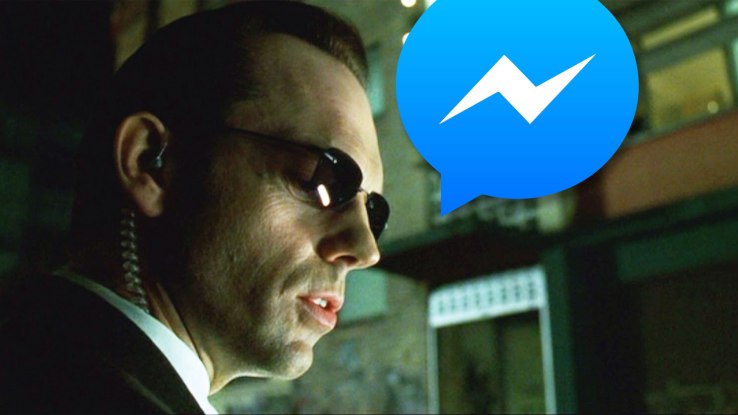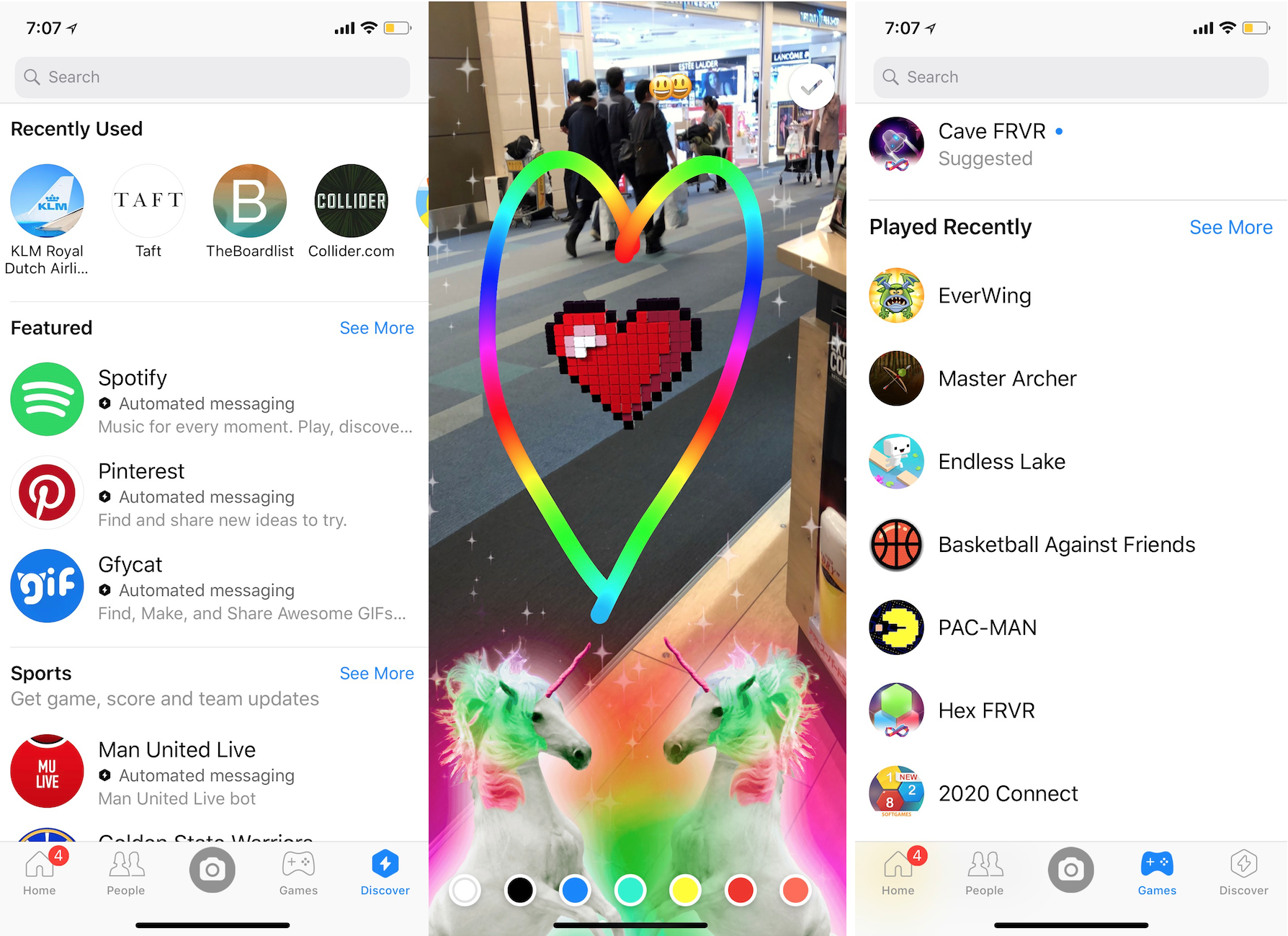Bloated Facebook Messenger promises to simplify in 2018

“The app became too cluttered” Facebook’s head of Messenger David Marcus announced today in a post of plans for 2018 including “massively simplifying and streamlining Messenger this year.” Between Messenger Day/Stories, its Snapchatty augmented reality camera, a bot Discover section, games, and more, Facebook had to build artificial intelligence “M Suggestions” just to remind people all the features it has crammed in the app.
Marcus is right — Messenger has strayed from its value of being an easy way to chat with people across devices without their phone numbers. So in a wise move similar to Facebook’s recent retreat from news and public content with its big algorithm overhaul, Messenger plans to consolidate around its core. “Over the last two years, we built a lot of capabilities to find the features that continue to set us apart. A lot of them have found their product market fit; some haven’t” he admits.
Here’s just some of the feature creep that’s invaded Messenger since 2016 without making the experience better day-to-day for its 1.3 billion users:

The streamlining is smart, given that Messenger has become the center of many people’s Facebook experience as sharing and browsing increasingly shifts to Instagram, Snapchat, Twitter, and other apps. Messenger should concentrate on communication. It doesn’t have to abandon everything else, but content broadcasting like Stories shouldn’t literally be highlighted above our message threads. And areas like games and bots don’t necessarily need whole tabs that could be used for more ways to actually get together offline or hang out online with your friends.
From the rest of Marcus’ announcement, though, it seems like some of the least liked features won’t be disappearing. Here’s the rest of his “trends” for Messenger in 2018″, which are vague, so I’ve added some hunches about how they’ll turn emerge in the product
- Real-Time Communication – “No one wants to miss a special moment, but real time communication is what connects us in times of crisis too” and Marcus hopes Messenger can help you make sure your friend is safe after a natural disaster.” From that it sounds like Messenger might become part of Facebook’s Safety Check in a more private and personal way. That could hopefully improve on the current system of prompting users to broadcast on Facebook that they’re okay, which can make friends worry that anyone who hasn’t posted might not be.
- Group Chat – “Group chats make it easier for us to spend time together both on and offline . . . but we have more in store for this year” Marcus writes and I suspect that Facebook’s instant split-screen group video chat Bonfire that mimics teen app Houseparty could go from a standalone app testing in a few countries to being baked more directly into Messenger in some form. Perhaps an even bigger opportunity would be a Down To Lunch-style product for helping find out which of your friends are available to hang out offline, not just chat.
- Visual Communication – Messenger saw 17 billion video chats (2X as many as last year), 500 billion emojis, and 18 billion GIFs sent in 2017. And while Stories in Messenger got hated on by the press and only had 70 million daily users as of November compared to 300 million on WhatsApp and Instagram, apparently the new version that syncs with also-maligned Facebook Stories may be sticking around. “visual messaging . . . is where the industry is heading, and we won’t be looking back” Marcus writes. But perhaps Messenger could focus more on back-and-forth visual messaging over broadcast, and make Stories more a piece of your message threads rather than bolted to the top of the app.
- Customer Service – At first you might not think you want to message with brands, but it sure beats calling them. “While calling still plays a prominent role in customer service, this has opened the door for brands and businesses to communicate with their customers in a variety of new ways . . . we’ll evolve Messenger as a true Customer Care channel in 2018″ writes Marcus. Perhaps Messenger could let you call or text for customer service, for when talking is actually easier than typing. Beyond that, better messaging tools could lead to wider adoption for businesses.
- Message Marketing – Facebook started injecting display ads into the inbox globally this year, despite these ads feeling a bit interruptive. Letting marketers build filters and augmented reality masks could be a less obtrusive, opt-in way for them to become part of our conversations. “Look for investment in rich messaging experiences not only from global brands, but small businesses who need to be creative and nimble to stay competitive” Marcus writes, which sounds like an expansion of Messenger ads to a more self-serve format like the Messenger Broadcast tool we reported it’s prototyped.
How Facebook will actually balance a simplification of its app with all these new things it wants to add will be quite a tightrope to walk. If it annoys users too much, and even a few of their friends stray from the app and stop responding on Messenger, it could create a downward spiral. But with iMessage also becoming bloated, Snapchat’s growth slowing down, and Google’s messaging apps a mess, Facebook is still best-poised to rule chat.
Published at Tue, 16 Jan 2018 15:04:32 +0000



